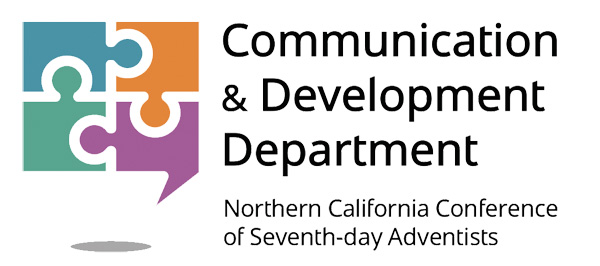Create a Culture of Generosity
Storytelling with a Purpose
Purpose
- Foster a giver-focused approach, encouraging heartfelt support.
- Create an emotional connection that makes giving feel personal and impactful.
- Inspire immediate action by showing how each gift positively transforms the ministry and community.
- Never use guilt as a motivator for giving.
Example for Local Church Budget
Instead of guilt-driven messaging:
What not to do:
“On Sabbath, a visitor came to church, only to find the doors locked because we couldn’t afford to keep them open. Make sure to give today so this does not happen to you.”
Inspirational Approach:
“On Sabbath, I came to church seeking peace. I found more than a building—I found a place where the Holy Spirit moves, where my soul could rest, and I could connect with my church family. This building is more than bricks and beams; it’s a sanctuary of hope, healing, and community. Your gift today keeps the lights on, the ministries alive, and the doors open to serve not just us but the 80 at-risk families in our community who rely on our food bank. With your support, this sacred space will continue to be where God is present, and lives are transformed.”

Jesus utilized parables, which are narratives with a more profound significance, to impart spiritual truths. As followers of Jesus, we also possess the capacity to communicate stories in a similar fashion.
Each person has their own way of telling stories, with some being better at it than others. However, storytelling is a skill that can be developed through regular practice. The most powerful stories are those that are told from the perspective of a personal journey and are described in great detail.
Here are the various stages in storytelling:
- Setting
- Conflict
- Rising Action
- Turning Point
- Resolution
- Conclusion
Storytelling Example 1

Setting: Introduce time, place, and person
At the age of 12, my family and I relocated to a ranch-style home on one acre of land in Escondido, CA. The property was surrounded by fields and a small number of homes. In front of our house, there were three unusual trees.
Conflict: Introduce the issue, concern, or problem
After the first year, the leaves on the trees turned green. My dad wanted to cut them down, but I prevented him from doing so. The second year came and went, and while the trees remained beautiful, nothing of note grew on their branches. Eventually, we forgot about them.
Rising Action: Introduce a change to come
During the third year, I noticed the trees were dry, so I watered them. At some point that same year, I noticed a green, fruit-like object growing on the trees. Over time, the fruit grew and eventually fell to the ground.
Turning Point: Introduce the tipping point
One day, I noticed my dogs eating the dropped fruit, and I sprinted out, fearful it might poison them. I picked up what they were eating and was surprised by what I saw.
Resolution: A funny or feel-good ending
I found out we had a small stand of Avocado Trees. The fruit they produced was so tasty that, to this day, I remember the flavor. We shared our fortune with others; my dogs had the shiniest coats ever.
Conclusion: Connect back to the purpose
What would have happened if I had not given them water or tried to protect my dogs? What would have happened if I did not act? The avocado trees turned into a gift and blessing from God. We had such an abundance that we joyfully shared, and they were blessed too.
Proverbs 3:9 instructs us to honor the Lord with our possessions and the first fruits of our labor. Giving to God is a way to show gratitude for all He has provided in our lives. And the Lord promises in verse 10 that our generosity will be rewarded with overflowing blessings. It’s a wonderful concept that fills me with hope and joy.
Storytelling Example 2

Setting: Introduce the time, place, and person
A California man was seriously injured in an automotive accident that ended his career in carpentry. He lived on disability checks for years.
Conflict: Introduce the issue, concern, or problem
When his disability checks ran out, his family’s financial situation worsened, so he couldn’t afford to support his children. As a result, they had to go live with their grandparents in Louisiana.
Rising Action: Introduce a change to come
The situation worsened until he saw a Navajo Blanket on Antiques Roadshow that looked very similar to the one he had inherited from his late great-grandmother.
Turning Point: Introduce the tipping point
After the show, he searched his home until he discovered the blanket in a dusty old box. He later auctioned it for $1.5 million.
Resolution: A funny or feel-good ending
He possessed a blanket worth a fortune through all the struggles and solutions to make ends meet. However, he needed to recognize its true value and utilize it to his advantage.
Conclusion: Connect back to the purpose
Let’s look at our scripture now, Malachi 3:10. “Bring all the tithes into the storehouse, That there may be food in My house, And try Me now in this,” Says the Lord of hosts, “If I will not open for you the windows of heaven And pour out for you such blessing, That there will not be room enough to receive it.”
By trusting God and taking action, we open ourselves to the abundance of blessings He provides. We must not keep these blessings hidden in a dusty old box but rather cherish and appreciate them. With continued faith and gratitude, we can continue to receive the blessings that come our way.Storytelling Example 3

Setting: Introduce the time, place, and person
A man pursued his dream of becoming a farmer by purchasing 100 acres of land, all the necessary tools, and a new tractor. He also got himself a hat and a fresh pair of overalls.
Conflict: Introduce the issue, concern, or problem
He said, “All right, I’m ready to go!” The next day he got up, had a nice breakfast, put his hat on, went outside, sat on the porch, and stared at his land all day.
Rising Action: Introduce a change to come
The man repeated the same action the following day, the next day, and even the day after. This routine went on for weeks, leaving him perplexed and constantly searching the ground for any indication of progress, but there was none.
Turning Point: Introduce the tipping point
According to natural laws, a seed must be planted for something to grow.
Resolution: A funny or feel-good ending
Despite having all the necessary tools, looking like a farmer, and even claiming to be one, there can be no yield without planting the seed.
Conclusion: Connect back to the purpose
In Mark, we see what Jesus says about the matter. “And He said, “The kingdom of God is as if a man should scatter seed on the ground, and should sleep by night and rise by day, and the seed should sprout and grow, he himself does not know how. For the earth yields crops by itself: first the blade, then the head, after that the full grain in the head. But when the grain ripens, immediately he puts in the sickle, because the harvest has come.” Jesus compares the kingdom of God to a man who scatters seed. This means that to have a harvest, we need to sow the seed first. Similarly, in spiritual law, Jesus emphasized the importance of planting the seed of faith. The farmer who does this is confident and prepared to receive the harvest when it comes. We can expect a guaranteed harvest if we plant a seed for God’s kingdom by returning our tithes and offerings. So, let’s sow the seed today and look forward to a fruitful harvest in the future.
Additional Resources
Resource Developed by the Communication and Development Department


Laurie Trujillo, CFRE
Assistant to the President for Communication and Development
(916) 886-5642
Laurie.Trujillo@nccsda.com


